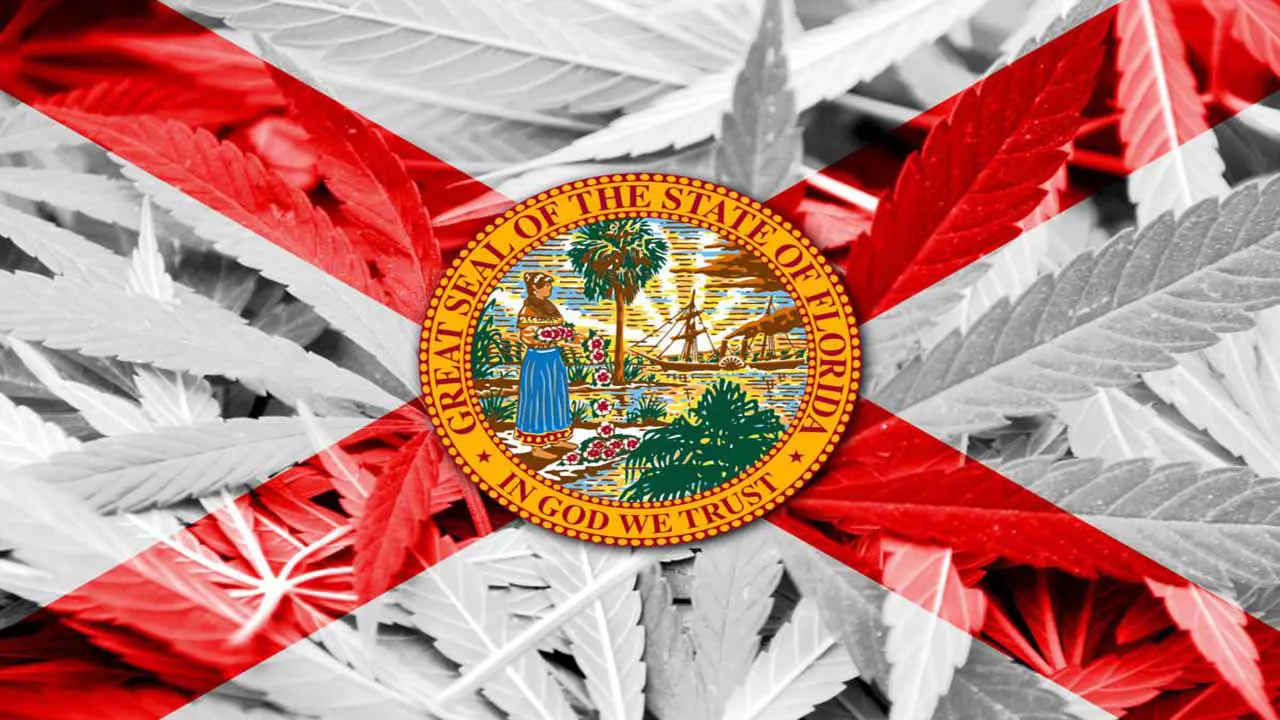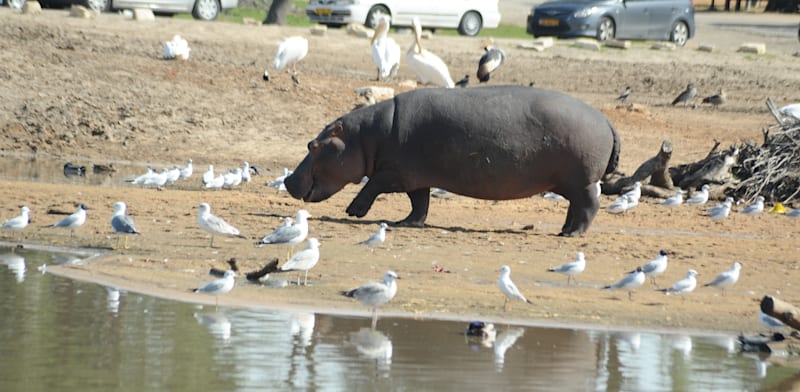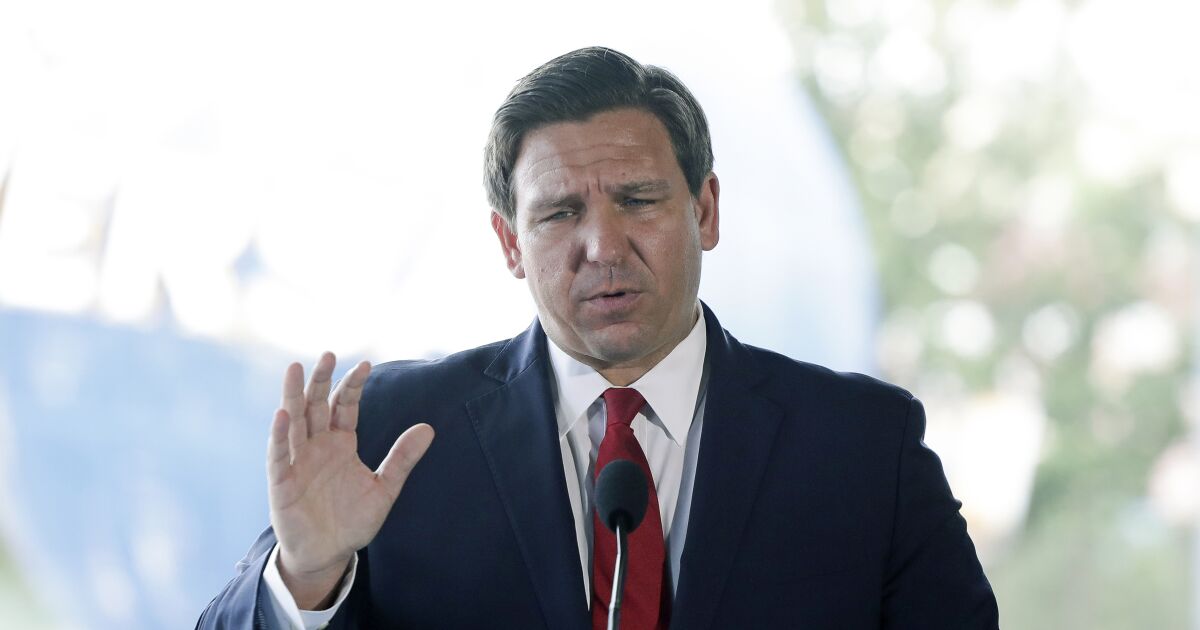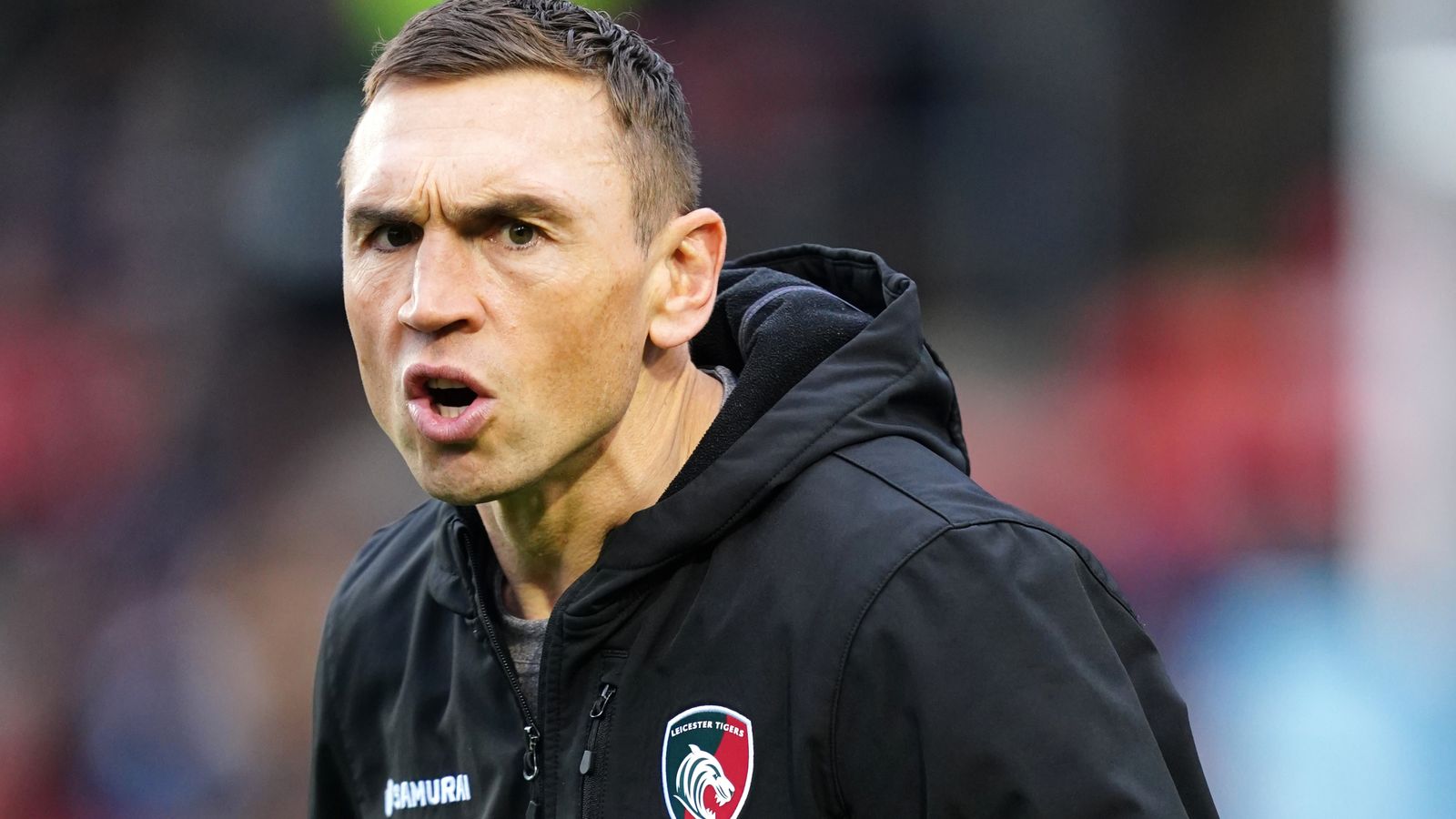Vivian Kargbo thought her daughter’s Boston school district was doing the right thing when officials kept classrooms closed for most students for more than a year.
Kargbo, a caregiver for hospice patients, didn’t want to risk them getting COVID-19. And extending pandemic school closures through the spring of 2021 is what many in her community said was best to keep kids and adults safe.
But her daughter became depressed and stopped doing school work or paying attention to online classes. The former honor-roll student failed nearly all of her eighth grade courses.
“She’s behind,” said Kargbo, whose daughter is now in tenth grade. “It didn’t work at all. Knowing what I know now, I would say they should have put them in school.”
Preliminary test scores around the country confirm what Kargbo witnessed: The longer many students studied remotely, the less they learned. Some educators and parents are questioning decisions in cities from Boston to Chicago to Los Angeles to remain online long after clear evidence emerged that schools weren’t COVID-19 super-spreaders — and months after life-saving adult vaccines became widely available.
There are fears for the futures of students who don’t catch up. They run the risk of never learning to read, long a precursor for dropping out of school. They might never master simple algebra, putting science and tech fields out of reach. The pandemic decline in college attendance could continue to accelerate, crippling the U.S. economy.
In a sign of how inflammatory the debate has become, there’s sharp disagreement among educators, school leaders and parents even about how to label the problems created by online school. “Learning loss” has become a lightning rod. Some fear the term might brand struggling students or cast blame on teachers, and they say it overlooks the need to save lives during a pandemic.
Regardless of what it’s called, the casualties of Zoom school are real.
The scale of the problem and the challenges in addressing it were apparent in Associated Press interviews with nearly 50 school leaders, teachers, parents and health officials, who struggled to agree on a way forward.
Some public health officials and educators warned against second-guessing the school closures for a virus that killed over a million people in the U.S. More than 200,000 children lost at least one parent.
“It is very easy with hindsight to say, ‘Oh, learning loss, we should have opened.’ People forget how many people died,” said Austin Beutner, former superintendent in Los Angeles, where students were online from mid-March 2020 until the start of hybrid instruction in April 2021.
The question isn’t merely academic.
School closures continued last year because of teacher shortages and COVID-19 spread. It’s conceivable another pandemic might emerge — or a different crisis.
But there’s another reason for asking what lessons have been learned: the kids who have fallen behind. Some third graders struggle to sound out words. Some ninth graders have given up on school because they feel so behind they can’t catch up. The future of American children hangs in the balance.
Many adults are pushing to move on, to stop talking about the impact of the pandemic — especially learning loss.
“As crazy as this sounds now, I’m afraid people are going to forget about the pandemic,” said Jason Kamras, superintendent in Richmond, Virginia. “People will say, ‘That was two years ago. Get over it.’”
When COVID-19 first reached the U.S., scientists didn’t fully understand how it spread or whether it was harmful to children. American schools, like most around the world, understandably shuttered in March 2020.
That summer, scientists learned kids didn’t face the same risks as adults, but experts couldn’t decide how to operate schools safely — or whether it was even possible.
It was already clear that remote learning was devastating for many young people. But did the risks of social isolation and falling behind outweigh the risks of children, school staff and families catching the virus?
The tradeoffs differed depending on how vulnerable a community felt. Black and Latino people, who historically had less access to health care, remain nearly twice as likely to die of COVID-19 than white people. Parents in those communities often had deep-rooted doubts about whether schools could keep their children safe.
Politics was a factor, too. Districts that reopened in person tended to be in areas that voted for President Donald Trump or had largely white populations.
By winter, studies showed schools weren’t contributing to increased COVID-19 spread in the community. Classes with masked students and distancing could be conducted safely, growing evidence said. President Joe Biden prioritized reopening schools when he took office in January 2021, and once the COVID-19 vaccine was available, some Democratic-leaning districts started to reopen.
Yet many schools stayed closed well into the spring, including in California, where the state’s powerful teachers unions fought returning to classrooms, citing lack of safety protocols.
In Chicago, after a six-week standoff with the teachers union, the district started bringing students back on a hybrid schedule just before spring 2021. It wasn’t until the fall that students were back in school full time.
Marla Williams initially supported Chicago Public Schools’ decision to instruct students online during the fall of 2020. Williams, a single mother, has asthma, as do her two children. While she was working, she enlisted her father, a retired teacher, to supervise her children’s studies.
Her father would log into his grandson’s classes from his suburban home and try to monitor what was happening. But it didn’t work.
Her son lost motivation and wouldn’t do his assignments. Once he went back on a hybrid schedule in spring 2021, he started doing well again, Williams said.
“I wish we’d been in person earlier,” she said. “Other schools seemed to be doing it successfully.”
Charles Rex Arbogast—AP
Officials were divided in Chicago. The city Department of Public Health advocated reopening schools months earlier, in the fall of 2020. The commissioner, Dr. Allison Arwady, said they felt the risk of missing education was higher than the risk of COVID-19. Others, such as the director of the Institute for Global Health at Northwestern University, advocated for staying remote.
“I think the answer on that has been settled fairly clearly, especially once we had vaccines available,” Arwady said. “I’m concerned about the loss that has occurred.”
From March 2020 to June 2021, the average student in Chicago lost 21 weeks of learning in reading and 20 weeks in math, equivalent to missing half a year of school, according to Georgetown University’s Edunomics Lab, which analyzed data from a widely used test called MAP to estimate learning loss for every U.S. school district.
Nationally, kids whose schools met mostly online in the 2020-2021 school year performed 13 percentage points lower in math and 8 percentage points lower in reading compared with schools meeting mostly in person, according to a 2022 study by Brown University economist Emily Oster.
The setbacks have some grappling with regret.
“I can’t imagine a situation where we would close schools again, unless there’s a virus attacking kids,” said Eric Conti, superintendent for Burlington, Massachusetts, a 3,400-student district outside Boston. His students alternated between online and in-person learning from the fall of 2020 until the next spring. “It’s going to be a very high bar.”
Dallas Superintendent Stephanie Elizalde initially disagreed with the Texas governor’s push to reopen schools in the fall of 2020. “But it was absolutely the right thing to do,” she said.
Some school officials said they lacked the expertise to decide whether it was safe to open schools.
“Schools should never have been placed in a situation where we have choice,” said Tony Wold, former associate superintendent of West Contra Costa Unified School District, east of San Francisco. “With lessons learned, when you have a public health pandemic, there needs to be a single voice.”
Still, many school officials said with hindsight they’d make the same decision to keep schools online well into 2021. Only two superintendents said they’d likely make a different decision if there were another pandemic that was not particularly dangerous to children.
In some communities, demographics and the historic underinvestment in schools loomed large, superintendents said. In the South, Black Americans’ fear of the virus was sometimes coupled with mistrust of schools rooted in segregation. Cities from Atlanta to Nashville to Jackson, Mississippi, shuttered schools — in some cases, for nearly all of the 2020-2021 school year.
In Clayton County, Georgia, home to the state’s highest percentage of Black residents, schools chief Morcease Beasley said he knew closing schools would have a devastating impact, but the fear in his community was overwhelming.
“I knew teachers couldn’t teach if they were that scared, and students couldn’t learn,” he said.
Rhode Island was an outlier among liberal-leaning coastal states when it ordered schools to reopen in person in the fall of 2020. “We can’t do this to our kids,” state education chief Angélica Infante-Green remembers thinking after watching students turn off cameras or log in from under blankets in bed. “This is not OK.”
But in the predominantly Latino and Black Rhode Island community of Central Falls, more than three-quarters of students stayed home to study remotely.
To address parent distrust, officials tracked COVID-19 cases among school-aged Central Falls residents. They met with families to show them the kids catching the virus were in remote learning — and they weren’t learning as much as students in school. It worked.
Among teachers, there’s some dispute about online learning’s impact on children. But many fear some students will be scarred for years.
“Should we have reopened earlier? Absolutely,” said California teacher Sarah Curry. She initially favored school closings in her rural Central Valley district, but grew frustrated with the duration of distance learning. She taught pre-kindergarten and found it impossible to maintain attention spans online.
One of her biggest regrets: that teachers who wanted to return to classrooms had little choice in the matter.
But the nation’s 3 million public school teachers are far from a monolith. Many lost loved ones to COVID-19, battled mental health challenges of their own or feared catching the virus.
Jessica Cross, who taught ninth grade math on Chicago’s west side at Phoenix Military Academy, feels her school reopened too soon.
“I didn’t feel entirely safe,” she said. Mask rules were good in theory, but not all students wore them properly. She said safety should come before academics.
“Ultimately, I still feel that remote learning was really the only thing to do,” Cross said.
A representative from the American Federation of Teachers declined in an interview to say whether the national union regrets the positions it took against reopening schools.
“If we start to play the blame game,” said Fedrick Ingram, AFT’s secretary-treasurer, “we get into the political fray of trying to determine if teachers did a good job or not. And I don’t think that’s fair.”
Regrets or no, experts agree: America’s kids need more from adults if they’re going to be made whole.
The country needs “ideally, a reinvention of public education as we know it,” Los Angeles Superintendent Alberto Carvalho said. Students need more days in school and smaller classes.
Short of extending the school year, experts say intensive tutoring is the most efficient way to help students catch up. Saturday school or doubling up on math or reading during a regular school day would also help.
Too few school districts have made those investments, Harvard economist Tom Kane said. Summer school is insufficient, Kane says — it’s voluntary, and many parents don’t sign up.
Adding school time for students is politically impossible in many cities. In Los Angeles, the teachers union filed a complaint after the district scheduled four optional school days for students to recoup learning. The school board in Richmond rejected a move to an all-year school calendar.
There are exceptions: Atlanta extended the school day 30 minutes for three years. Hopewell Schools in Virginia moved to year-round schooling last year.
Even the federal government’s record education spending isn’t enough for the scope of kids’ academic setbacks, according to the American Educational Research Association. Researchers there estimate it will cost $700 billion to offset learning loss for America’s schoolchildren – more than three times the $190 billion allocated to schools.
“We need something on the scale of the Marshall Plan for education,” said Kamras, the Richmond superintendent. “Anything short of that and we’re going to see this blip in outcomes become permanent for a generation of children — and that would be criminal.”
















